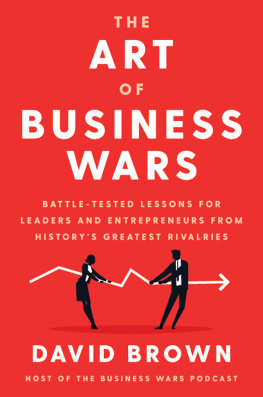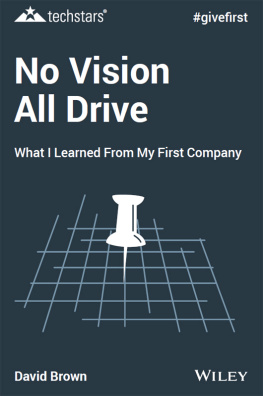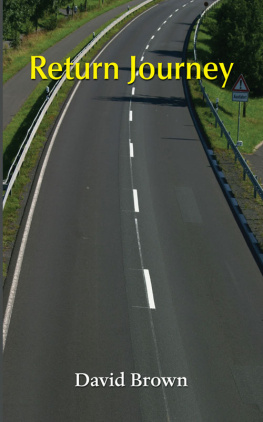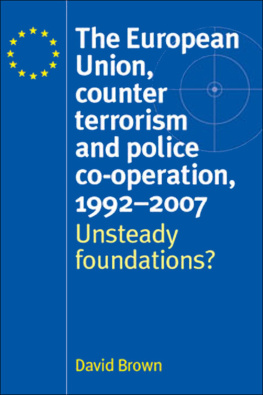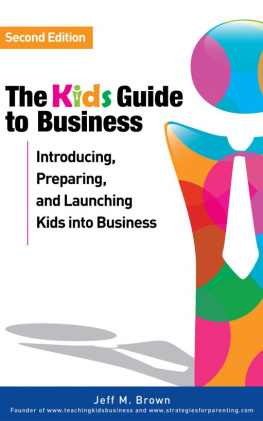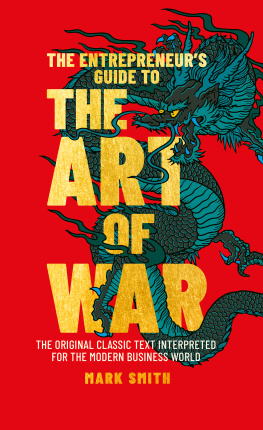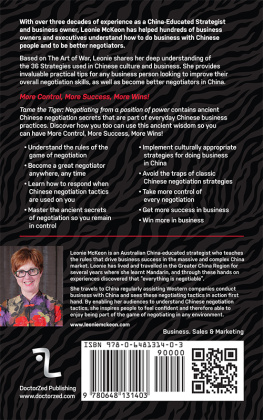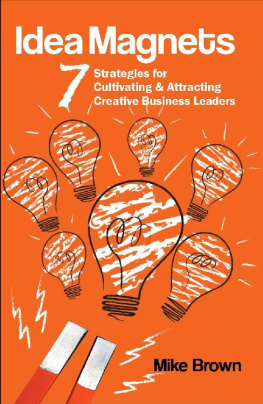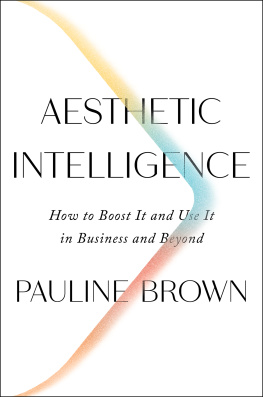To our loyal podcast listeners. And to the entrepreneurs, executives,
and employees featured in these stories. They are the true
business warriors.
Contents
Move not unless you see an advantage; use not your troops unless there is something to be gained; fight not unless the position is critical.
Sun Tzu, The Art of War
Business is battle. Regardless of how you make your profits, theres somebody else out there willing to do the same thing faster or cheaper or better than you can. Your rival is hungry, determined, scrappy as hell. How are you going to beat them?
The stakes are high. Sure, a business rivalry, unlike a war, is civilizedin theory, at least. But lives are still on the line. You and your employees and all your families need to eat. If the business fails, how are you all gonna pay the rent? Your nation still stands after you lose a business war, but if youre on the bread line, youre still a casualty. Survival of the fittest is as true in the boardroomor the coworking spaceas it is on the battlefront. If the source of your livelihood is on the line, the war is very real to you. Do you want to win or not?
For well over two thousand years, warriors looking for an edge have turned to a slim treatise of military advice and philosophy by the Chinese general Sun Tzu. Sun Tzu lived during the Warring States period, an era of brutal, unceasing conflict. What better parallel for the American business landscape of the last century and more? Though the English translation of the title of his book is The Art of War, Sun Tzu was primarily concerned with avoiding a fight. As a veteran of fierce battles, he knew firsthand that war was expensive, wasteful, and insanely risky. It was for this last reason above all that war was always the last resort. He will win, Sun Tzu wrote, who knows when to fight and when not to fight. Instead, he focused on alternatives: avoidance, alliance, intimidation, deception. If, and only if, every other strategy failed did it make sense to start swinging swords. Even then, you waited until the odds were in your favor, when a decisive victory could be claimed. To Sun Tzu, there was no greater waste of precious resources than a stalemate.
Though the book is slightly dated by its chariot-fighting tips, most of The Art of War feels as timely and relevant as it must have two and a half millennia ago. Much of its guidance applies to any high-stakes conflict. Whether writing on the subject of cultivating patience, planning ahead, or exploiting your opponents vulnerabilities, Sun Tzu gives the average McKinsey consultant or Harvard Business School professor a run for their money. Thats why, when we decided to write a book based on Business Wars, one of the worlds most popular podcasts, we turned to this immortal classic for inspiration.
The conceit of our podcast is simple. Each series relates a pitched battle between two iconic companies: Uber vs. Lyft. FedEx vs. UPS. Starbucks vs. Dunkin Donuts. By looking closely at past entrepreneurial battles, we hope to get inside the minds of the leaders who fought them and better understand what it takes to win. As Sun Tzu knew, experience is the greatest teacher. When we cant call on our own experience, we can turn to history for our lessons. As Winston Churchill said, The longer you can look back, the farther you can look forward. Our goal with this book is not only to tell a series of extraordinary stories but to delve even deeper than the format of the podcast allows, to get to the very heart of each conflict and unearth all the valuable lessons to be found there.
* * *
The stories of business successes and failures are personal to the participants but also to those touched by the work those businesses do. The brands in this book are touchstones in our lives. Personally, I can take a break from work to mess around on my Les Paul guitar and feel an immediate sense of comfort in the fact that Im a Gibson guy (though, of course, Fenders have their place). Ill debate with family members at dinner over the merits of being a Mac person, not a PC. Harley riders rolling past me on my Triumph will even refuse to give me the motorcyclists wave.
Thats okay: We all have our loyalties.
Growing up in a small southern town where Coca-Cola was king and popping open a Pepsi was almost an act of disloyalty, I remember seeing my first Pizza Hut and thinking it was somehow exotic. (The world was smaller then.) As a journalist, I ordered Dominos on the night election returns crashed at the Georgia State Capitol and that was all we reporters could get at midnight in the rotunda. Today, I cant pass by a Dominos sign without thinking of how much has changed in such a short time. And who among us doesnt recall taking that first Uber trip and thinking about how travel in an unfamiliar city would never be the same?
The world of business is so woven into the fabric of society that its almost invisible. Thats why it excites my curiosityits a hidden world with extraordinary impact on every aspect of our daily lives. As a journalist, I live and die by my curiosity. I wanted to understand this hidden world. Thats how I ended up as an anchor of the public radio business show Marketplace before going on to host Business Wars.
Even before I became a business journalist, I had an abiding interest in commerce. I have vivid memories of pulling the Childcraft encyclopedia off the shelf and turning to the section that challenged young readers like me to match logos with the businesses they represented. My brother thought I was nuts for bragging about distinguishing between Allstate and Westinghouse, but for me these icons were really just springboards into stories. Even as a boy, Id happily spend hours reading about anything from television networks to real estate development to the Sears catalog. These were the stories behind the stories, a map that explained the ad-strewn, brand-dotted American landscape of my childhood.
At the end of the day, business battles arent cold, bloodless affairs. They are human stories about people with ideas, ideas which sometimes have the potential to change the world. Each war recounted in this book offers lessons about facing down opposition to the new, fending off upstarts, taking charge, pushing back, making big changes, and, quite often, biting off more than you can chew. As such, they are lessons on triumph and defeat made utterly compelling by out-of-the-blue reversals and Shakespearean-scale tragedies. In The Art of Business Wars, leaders of all stripes match wills in pursuit of opposing outcomes. They devise strategies and marshal resources. Victory turns on the smallest of details; a single tactical blunder can topple an empire. Winners and losers alike walk away with valuable lessons. Now, readers can do the same without the slightest risk of bankruptcy or public humiliation.
Arent books great?
* * *
Considering the extraordinary degree of competition for our attention today, it humbles me to know that our podcast is downloaded by 4 million people a month. Even more astounding for the world of podcasting, 95 percent of our listeners finish each episode. Why do all these peopleincluding hordes of leaders, managers, business academics, and entrepreneurs all over the worldlisten to Business Wars? They turn to the podcast for the same reason that generations of leaders have turned to Sun Tzu: some lessons are timeless.
I love telling the stories of business wars on our podcast, but here in this book, weve had the opportunity to go even deeper. Though some of the companies we discuss have been featured on the podcast, many are entirely new, and all of the material presents a fresh perspective. For the first time, weve had the opportunity to draw parallels and connections between different stories and across different industries and eras.

